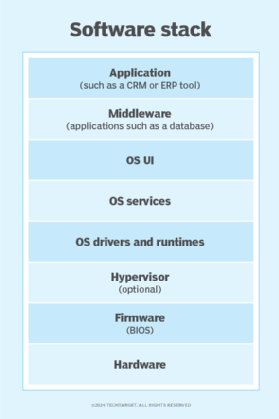freeware
What is freeware?
Freeware (not to be confused with free software) is a type of proprietary software that is released without charge to the public.
Depending on the freeware's copyright, you may or may not be able to reuse it in software you're developing. The least restrictive no-cost programs are programs without copyright -- i.e., free software -- that are in the public domain.
Freeware is often created by independent developers and made available for download on their own websites or through third-party app stores. Many popular programs started out as freeware before becoming Open Source software.
Who created the first freeware?
The term freeware was first coined by Andrew Fluegelman when he released his PC software program PC-Talk in 1980 as freeware. Fluegelman wanted others to use and enjoy his program without having to pay for it. He allowed others to distribute PC-Talk as long as they didn't sell it or change the code.
What's the difference between freeware and free software?
The main difference between freeware and free software is that free software is released under a license that allows users to change and distribute the software, whereas freeware is copyrighted and cannot be modified or distributed.

The definition of free software is stipulated as part of the GNU project and by the Free Software Foundation. It is typically created by volunteers and funded through donations, while freeware is usually developed by businesses and then offered free as a marketing tool.
While freeware may be a cheaper alternative to commercial software, it's important to remember that users don't have the same freedoms as with free software.
Before downloading freeware, users should be sure to read the license agreement carefully. Otherwise, they could inadvertently violate the terms and receive a cease-and-desist order or have to pay damages.
What's the difference between freeware and shareware?
Shareware is a type of trial software that lets people use the program for a certain period or with certain features disabled. If users find the program useful, they can pay to unlock the full version.
Like freeware, independent developers often create shareware and make it available for download on their own websites or through third-party app stores. However, shareware is not free to use indefinitely like freeware is.
The main difference between freeware and shareware is that freeware doesn't require payment to use, while shareware does, eventually.
As mentioned in the previous section, users should always read the license agreement carefully to avoid violating the terms.
What's the difference between freeware and open source software?
While freeware may be free, it's not open source software. Open source software is always free to use, change and distribute -- with some conditions.
Freeware may or may not come with source code. If the source code is not available, users won't be able to change the program. Many freeware programs are only free for personal use. If users want to use them for commercial use, they'll need to buy a license.
Open source software is usually developed in a public, collaborative way. Anyone can contribute to the code and make changes as they see fit. The most famous example of open source software is Linux.
What should I keep in mind when using freeware?
When reusing public domain software in your own programs, it's good to know the history of the program to verify that it really is in the public domain. If you're not sure, always err on the side of caution and get permission from the copyright holder before using any copyright code.
When downloading freeware from third-party app stores or websites, pay attention to the reviews and ratings to make sure others have had a positive experience with the software. Also, be sure to read the license agreement carefully before using the program.
And, finally, remember independent developers usually develop that freeware in their spare time, so don't expect too much in terms of features or customer support. If you find a freeware program that has just what you need, consider making a donation to the developer to show your appreciation.
See also: public domain software
